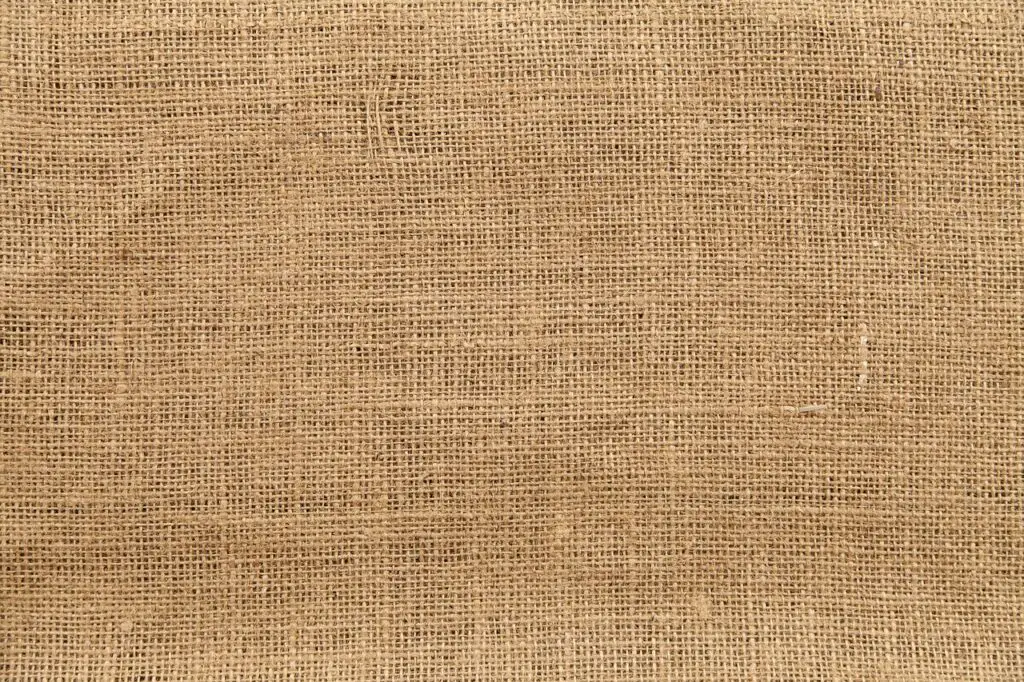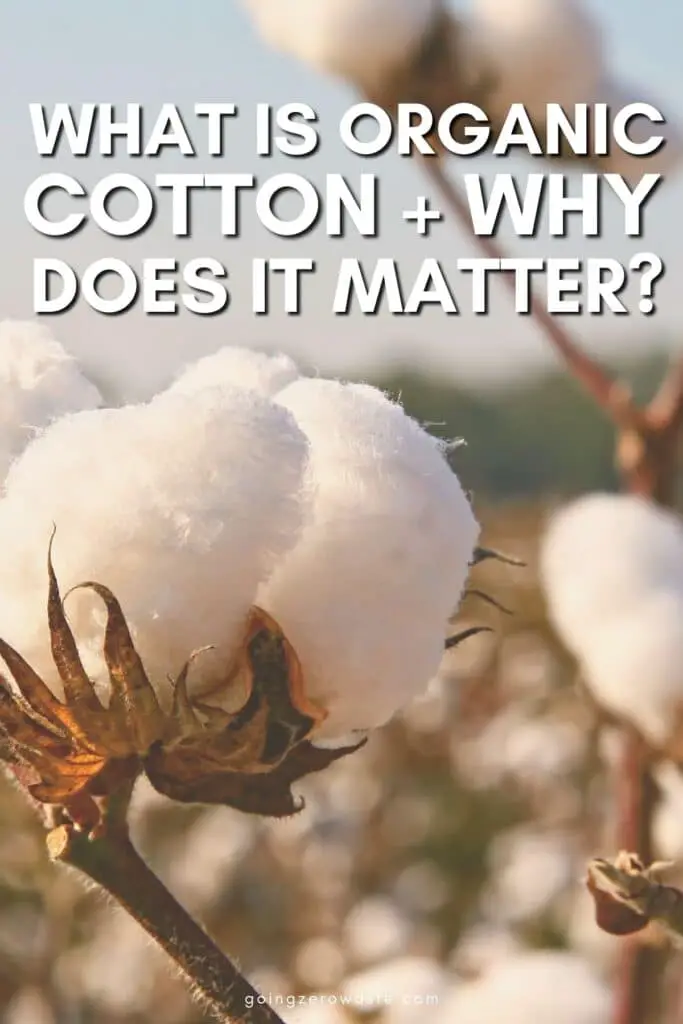
Last Updated on February 24, 2023
You’ve in all probability heard me use the time period “natural cotton” on my web site earlier than. But what’s natural cotton and what manufacturers are using it?
Essentially, natural cotton is grown utilizing strategies and supplies which have a low impression on the atmosphere. It’s grown with out pesticides or different dangerous supplies. There are a number of manufacturers that make the most of natural cotton, akin to Pact, Patagonia, and Ten Tree.

Some of the hyperlinks on this publish are affiliate hyperlinks; for extra info please see my disclosure coverage.
Organic manufacturing methods replenish and preserve soil fertility, scale back using poisonous and protracted pesticides and fertilizers, and construct biologically numerous agriculture.
Here’s what it is advisable to learn about natural manufacturing and the way to buy merchandise that use natural cotton.
what’s the distinction between cotton and natural cotton?
The distinction between cotton and natural cotton boils all the way down to how they have been farmed. Conventional cotton comes from genetically modified seeds designed to withstand bugs, however extra pesticides are wanted when bugs turn out to be stronger.
In truth, cotton is among the top four genetically modified crops on the planet. It’s additionally thought of the world’s “dirtiest crop” as a result of it requires heavy quantities of poisonous pesticides. These pesticides have poisoned 1000’s of cotton farmers, in addition to pollute the atmosphere.
An instance of that is Aldicarb, cotton’s second bestselling insecticide, and most acutely toxic to people and wildlife.
Alidcarb was phased out of the U.S. from 2014-2018 after 16 states reported it of their groundwater. The drawback is Aldicarb continues to be utilized in 25 international locations, together with further pesticides and pesticides.
These are two lists with each pesticides and insecticides used on cotton. It’s clear utilizing effectively over 14 chemical compounds on one crop can result in a number of environmental and human well being issues.
Insecticides are designed to intrude with organic methods. They might be breathed in by the air, or drunk in contaminated water.
Cotton is a water-intensive crop. But chemical compounds sprayed on the plant will combine with water runoff. This results in groundwater contamination. To offer you an thought of how water-hungry cotton is, it takes 2,500 liters of water to provide one t-shirt.
But natural cotton is grown in a approach that doesn’t require using pesticides or different dangerous chemical compounds. Organic cotton doesn’t use genetically modified seeds and it requires 91% less water than its standard counterpart. It’s liable for a lot much less water pollution, too.
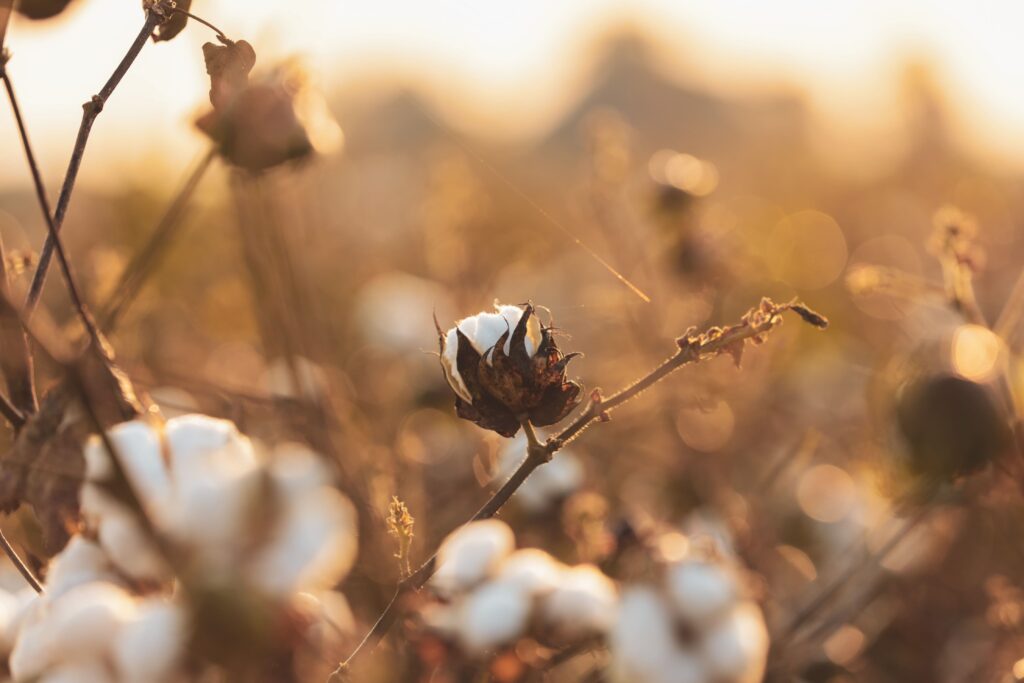
is natural cotton higher than 100% cotton?
Yes, natural cotton is healthier than something labeled merely “100% cotton” as a result of it’s extra sustainable. Anything labeled merely “100% cotton” might be from GMO seeds and be farmed with sturdy pesticide utilization.
However, natural cotton makes use of no pesticides, pesticides, or harsh fertilizers and chemical compounds. It additionally makes use of much less water, preserves soil high quality and limits soil erosion. This helps create extra regenerative farming practices.
Here’s how natural cotton is farmed:
- Growing cowl crops (this helps shield the soil when not in use)
- Applying natural fertilizers and compost (there’s no harsh chemical compounds in these, and compost helps hold the soil wholesome)
- In place of pesticides, copper sulfate and insecticidal cleaning soap could also be used
- Using useful bugs (as a substitute of driving all of them away with pesticides, although pure pesticides like neem oil could also be used)
- Incorporating crop rotation strategies (so it’s not a monoculture and the land will get again some vitamins that have been depleted when cotton alone grew in that spot)
- Opting for human labor for weed management (as a substitute of spraying pesticides)
what’s the issue with standard farming?
Organic cotton farming strategies assist help soil fertility and enhance biodiversity. This is essential contemplating some consultants suspect that Earth will run out of usable topsoil inside 60 years, on account of unsustainable farming practices.
When topsoil erodes, the vitamins crops want go together with it, making it tougher for soil to retailer water and help plant development. Farmers can lose 50 to 70 % of their yield potential due to the lack of topsoil.
Insects are also dying off at alarming rates, and this is because of our reliance on pesticides utilized in farming, habitat loss, and local weather change.
According to Nat Geo, yearly, the variety of bugs flying over, crawling on, or burrowing in some components of the planet drops by a proportion level or two. That means areas of extreme decline may lose as a lot as a lot as a 3rd of all their bugs in 20 years.
This harms our soil and meals manufacturing as a result of so many vegetation depend on useful bugs to pollinate them, hunt undesirable bugs that might in any other case devastate a crop, or just enhance soil well being (assume decomposers like crimson wigglers and capsule bugs).
This is why natural and regenerative rising strategies are so very important to the well being of our earth, wildlife and human survival.
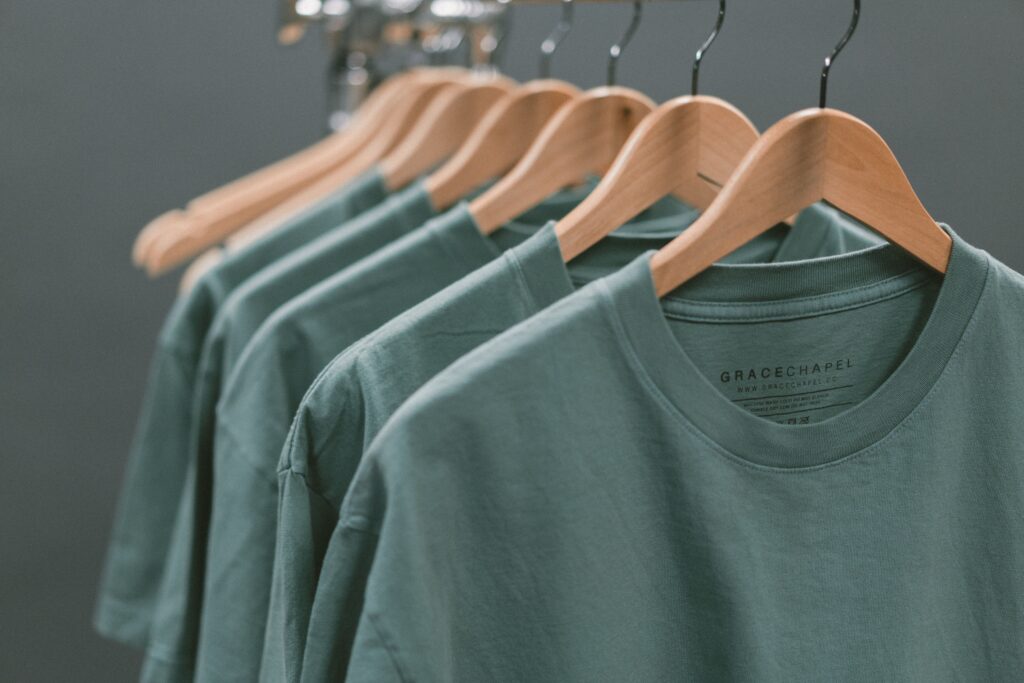
why you must put on natural cotton?
You ought to put on natural cotton since you’re serving to help a extra sustainable methodology of farming that can replenish earth’s sources as a substitute of deplete them.
You’re additionally serving to help the well being of cotton farmers, and the communities they stay in, once you select natural cotton. And most natural cotton is honest commerce which suggests cotton farmers are paid honest wages for his or her labor.
In addition to environmental advantages, natural cotton creates softer, extra sturdy, higher-quality clothes.
The natural cotton isn’t processed with any harsh chemical compounds, so the ensuing clothes is extra snug when worn.
At the processing stage, there are not one of the poisonous chemical compounds (assume: formaldehyde, heavy metals, flame retardants, and so forth.) generally present in standard cotton, making it so that you gained’t take in hint quantities of chemical compounds with each put on.
This is why you’ll typically see many child garments being made with natural cotton: It’s good for folks with delicate pores and skin.

is natural cotton higher than polyester?
Organic cotton is healthier than polyester relating to on a regular basis clothes and family linens. The one exception is in case you’re on the lookout for athletic put on, as you’ll want one thing with a bit extra stretch and moisture wicking effectivity.
Here are some sustainable activewear manufacturers to contemplate that use eco-friendly, recycled supplies.
Otherwise, natural cotton is healthier than polyester as a result of it’s a pure materials and gained’t shed microplastics within the wash. Every time a bit of artificial clothes is washed, it releases 1,900 plastic microfibers into the water.
These microfibers go out of your washer straight to sewage vegetation or native waterways. Microplastics find yourself washed out to sea as a result of they’re too small to be filtered.
Also pure supplies like natural cotton gained’t trigger as a lot irritation or chaffing to the pores and skin, particularly in scorching climate.
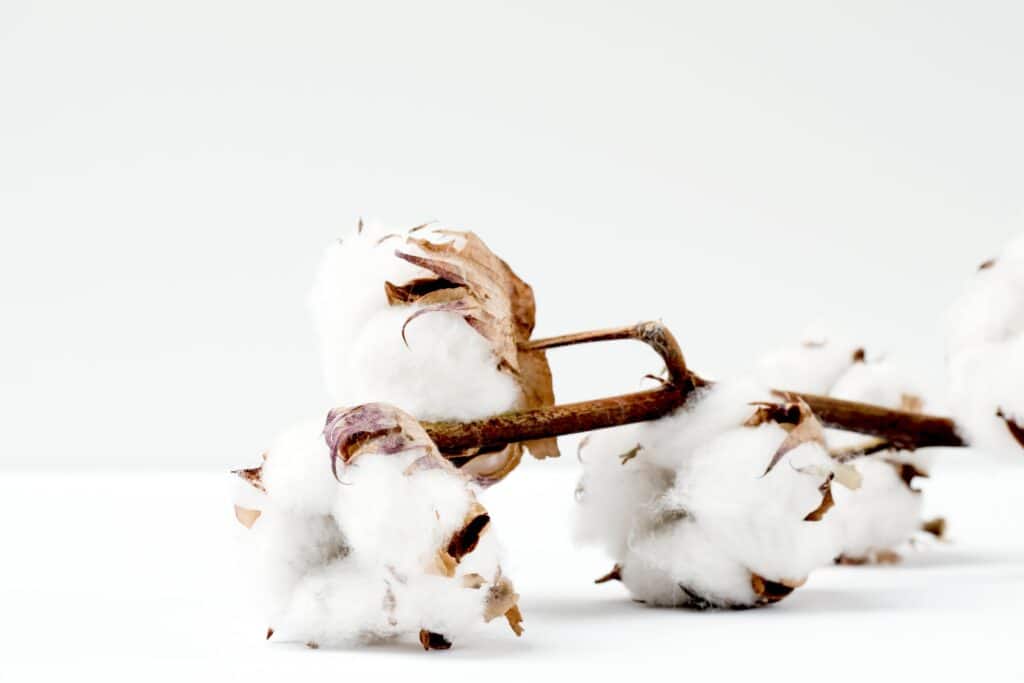
is natural cotton good high quality?
Organic cotton is sweet high quality cotton as a result of it wasn’t handled with a bunch of chemical compounds. The fibres are for much longer in comparison with common cotton which makes it softer on the pores and skin.
However, it is very important be aware that not all natural cotton is created equal. You ought to all the time search for Global Organic Textile Standard (GOTS) licensed natural cotton when doable.
GOTS is the worldwide main textile processing customary for natural fibers. It’s the hardest third-party natural textile customary, and anybody who applies should meet their strict standards from begin to end of a product.
To be GOTs licensed your natural cotton should:
- Contain a minimal of 95% licensed natural fibers
- Be processed with out bleach, dye, formaldehyde, and different poisonous chemical compounds
- Be produced in a mill that has strict environmental and social requirements (aka prohibits baby labor, minimizes waste, offers honest wages, and so forth.)
- Be freed from chemical dyes and azo (they launch carcinogenic compounds)
To have a GOTS natural cotton certification means the model you’re selecting to purchase from isn’t mendacity to you (aka greenwashing).
Some different sustainable cotton certifications to search for:
- Organic Content Standard (OCS): A 3rd-party certification that may be utilized to any non-food product and accommodates at the least 95% natural materials. It’s the subsequent most stringent to GOTS when it comes to sustainable farming practices.
- Fairtrade: While not all the time natural, Fairtrade-certified cotton bans genetically modified cotton seeds and has practices in place to guard farmer’s security. Plus, they guarantee to supply honest wages.
- Regenerative Organic Certified (ROC): Relatively new certification scheme is for merchandise that meet a number of the highest requirements set for soil well being, animal welfare, and farmworker equity.
- USDA National Organic Standard + Organic Trade Association (OTA): Both don’t certify all the course of like GOTS, however they see to it that cotton has been grown organically.
the very best manufacturers that use natural cotton
Now that we’ve analyzed “what’s natural cotton,” listed below are some manufacturers that use natural cotton of their clothes strains and get the Going Zero Waste seal of approval. All these manufacturers are natural licensed however most transcend that, be it by donating to nonprofits, or being local weather impartial.
I’ve gone forward and highlighted some key options of every model, however it isn’t an exhaustive checklist. Be positive to take a look at their web sites for extra info.

1. pact
- GOTS Certified Organic Cotton
- Women, males + youngsters’s on a regular basis clothes
- FSC licensed recyclable paper bag shipper
- Give again field program
- Fair commerce
- Carbon impartial licensed
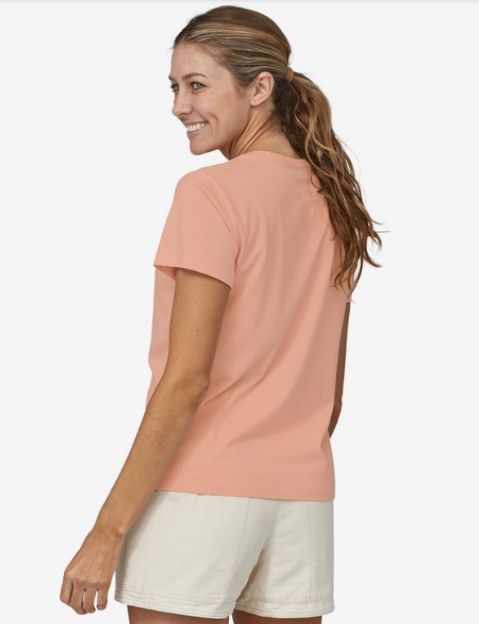
2. patagonia
- Regenerative Organic Certified cotton
- Outdoor clothes for ladies, males + youngsters
- Worn Wear program
- Founder donated firm to combat local weather change
- 1% For The Planet member

3. tentree
- Blends made with 100% natural cotton
- Women and males’s clothes
- 10 timber planted with each order
- Ethical manufacturing
- Responsible packaging
- B Corporation
- Carbon impartial licensed

4. mate the label
- Organic Cotton Jersey grown in Maharashtra, India, knitted + dyed within the United States
- Women + males’s clothes
- No plastic packaging
- Take-back recycling program
- 1% For the Planet member
- Carbon impartial licensed

5. organic basics
- GOTS Certified Organic Cotton
- Women + males’s clothes
- Established the Regenerative Organic Cotton Pilot Project with WWF-Turkey
- 1% for the Planet member

6. for days
- GOTS Certified Materials
- Women + males’s garments
- SMETA licensed factories
- Dyes are non-toxic + Cradle-to-Cradle licensed
- 10% closet money on each buy (website credit score you should utilize for future purchases)
- Take again bag

7. crann organic
- GOTS Certified Organic Cotton
- Kid’s clothes
- Free from irritating tags and cuffs
- Ethical manufacturing

8. beaumont organic
- GOTS Certified Organic Cotton
- Women’s clothes
- British-based firm
- Ethically made in Portugal
- work with factories throughout the EU that pay honest wages + assure employee security

9. indigenous
- Pima 100% Organic Cotton Fiber produced on family-operated farms in Peru
- Women’s garments + equipment
- Fair commerce
- Employs 1000 artisans in Peru who focus on hand-knitting/weaving

10. wvn
- GOTS Certified Organic Cotton
- Women’s clothes
- Heritage Collections are hand-made by artisans utilizing conventional strategies + practices
- Fair commerce licensed factories
- B Corporation
So, what do you consider natural cotton? Let me know within the feedback under!



